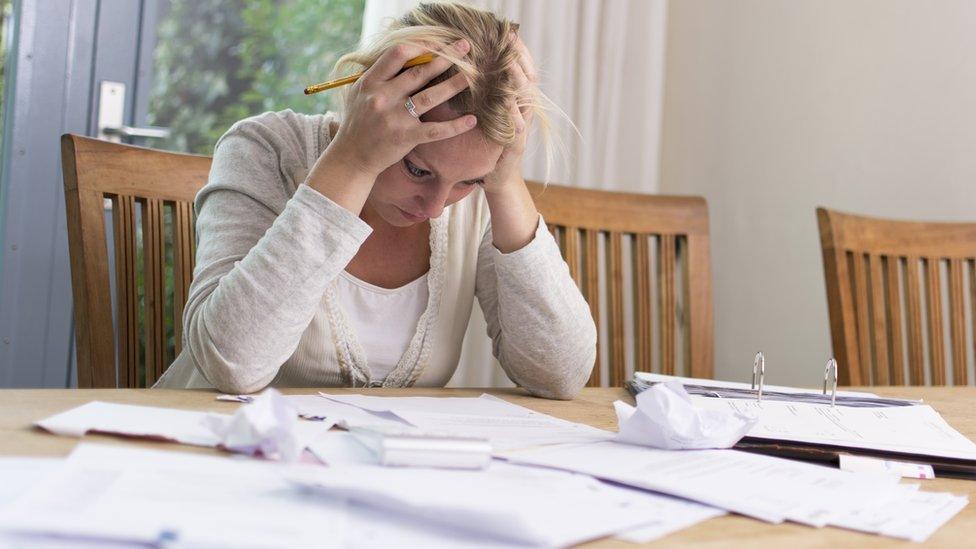Covid in Wales: Mental health could be harmed by uncertainty
- Published

A lack of control over what will happen in the future can be damaging to mental wellbeing, says one professor
Changes in restrictions due to the spread of Omicron could be "very damaging" to mental health, a professor says.
In Wales, Covid rules are now being reviewed weekly.
Ministers announced on Friday nightclubs will shut after Boxing Day and social distancing will return in shops and offices.
Health Minister Eluned Morgan said she does not want to "cancel" Christmas, but nothing has been ruled out.
Julia Terry, a former mental health nurse and associate professor at Swansea University, said it is human nature to feel unsettled by uncertainty.
"We like to know what's around the corner, we like to plan for it, it gives us a strong foundation," she said.
Data from mental health charity Mind Cymru has shown more than half of adults, and about three-quarters of young people, say their mental health had worsened during the pandemic.
Prof Terry, whose research includes mental health promotion and care experiences, said restrictions are important to help save lives, but they can be "very damaging" to some.
"People were starting to feeling optimistic, starting to make plans, starting to lead their lives a bit more," she said.
"You've gone from people being optimistic to people having their hopes dashed again."

Prof Terry says new restrictions could be "very damaging", but protecting people's lives has to be a priority
After almost two years of intermittent lockdowns, Prof Terry said not being able to plan ahead can damage mental wellbeing.
"If people have planned events and connecting with other people, and that changes, you've gone from people being optimistic to people having their hopes dashed again," she added.
'A reduced existence'
She said one of the most damaging aspects of Covid lockdowns on mental health is the lack of control people have.
"All the things that we get benefit and positivity from has been completely taken away from us, when we have no control that is when people begin to feel anxious, frustrated or depressed.
"We have seen people of all ages living a very kind of reduced existence, staying within the confines of their homes, having limited contact with other people."
Simon Jones, Head of Policy at mental health charity Mind Cymru, said there was "no normal way" to react to the pandemic, and that changing restrictions can contribute to anxiety.
"It is important to recognise that the current situation may feel stressful as things are changing quickly," he said.
"It is unsurprising that many people feel anxious or unprepared for any changes that might happen in the coming weeks."

What are some ways to improve mental health?
Connecting with other people is a vital way of maintaining wellbeing, says Mind, so it is good do that however you can.
Sticking to a routine can also help maintain mental wellbeing, and incorporating some physical exercise into that can help further.

Keeping physically active and accessing nature can boost mental wellbeing, say Mind Cymru
And any access to nature can be really helpful in boosting wellbeing.
Even something as simple as sitting by a window and watching the birds, or taking care of a pot plant, can be beneficial.
Mind recommend keeping your mind active, by trying an online course or seeing if your local library has an app you can use to borrow books, audiobooks, or magazines.

While there are ways to help maintain mental being, Dr Terry thinks the pandemic has highlighted that mental health needs more focus in future.
"I think the pandemic has shone a spotlight on many things in our society that have needed attention for a very long time," she said.
"We have learned lot from this pandemic, we really need to hold on and remember what has come out of this in terms of what we need to focus our priorities on."
- Published9 December 2021

- Published11 February 2021

- Published25 November 2021

- Published24 November 2021
